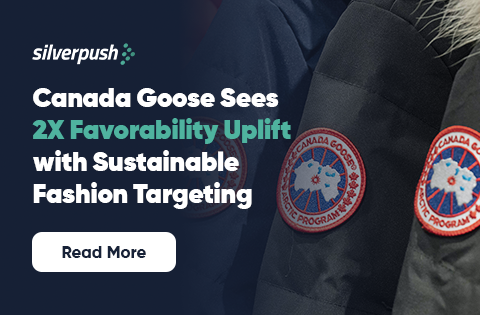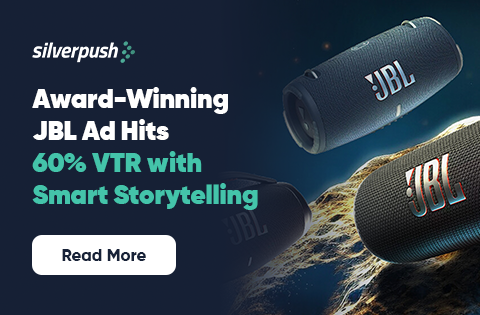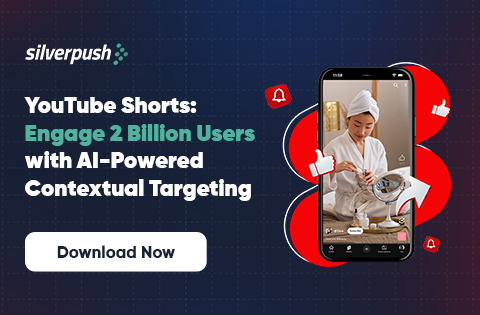Personalization Vs Privacy: Advertisers Struggle to Find the Right Balance | 07 Aug, 2023

72% of consumers are comfortable with personalized ads if they’re relevant and not intrusive.
Today’s digital world has left advertisers at a crossroads between two essential yet conflicting concepts: personalization and privacy.
On one hand, consumers crave personalized experiences that cater to their unique needs and preferences. On the other hand, the growing concerns surrounding privacy breaches and data misuse have led to a demand for stronger data protection measures.
According to data, 62% of consumers expect personalization, claiming a brand will lose their loyalty if their experience is not personalized. This makes it indispensable for advertisers to reach their users with tailored content.
However, this doesn’t necessitates invasive tracking or acquiring users’ personally identifiable information (PII). Instead, the focus should be on comprehending the underlying intentions that drive their online presence and presenting them with contextually relevant and personalized information. An example of this is beauty brands like Ulta and Sephora offering quizzes to their first-time visitors to better understand their wants and needs.
This blog dives into the intricacies of this ongoing struggle and explores the challenges and potential contextual advertising solutions for brands to find the right balance between personalization and privacy.
The Power of Personalization: Enhancing Customer Experiences

By understanding the individual needs and preferences of each customer, businesses can create personalized experiences that resonate with them on a deeper level. This can lead to a number of benefits, including:
1. Increased Customer Satisfaction
When customers feel like they are being treated as individuals, they are more likely to be satisfied with their overall experience. This can lead to repeat business and positive word-of-mouth referrals.
2. Improved Conversion Rates
Personalized experiences can help businesses convert more leads into customers. For example, a study by McKinsey found that personalized recommendations can increase sales by up to 20%.
3. Reduced Customer Churn
When customers feel like they are valued and understood, they are less likely to switch to a competitor. A study by Bain & Company found that a 5% increase in customer retention can lead to a 25% increase in profits.
4. Increased Brand Loyalty
When customers have a positive experience with a brand, they are more likely to become loyal customers. This can result in repeat business and positive word-of-mouth referrals.
Consumer Privacy is a Challenge and an Opportunity
While personalization offers benefits, the data required to fuel it often raises concerns about privacy. High-profile data breaches and stories of personal information being mishandled have fueled a collective unease among consumers.
The Cambridge Analytica scandal and the subsequent implementation of regulations like the General Data Protection Regulation (GDPR) and the California Consumer Privacy Act (CCPA) have underlined the importance of safeguarding user data. This conflict is understandable; consumers want personalized experiences, but not at the cost of their privacy.
As per research conducted by Deloitte, 33% of American consumers indicate that if they do not receive a satisfying experience, they might move to the next most suitable solution. Striking the right balance is imperative for advertisers to build and maintain trust with their target audience.
Also Read: Contextual Ad Targeting Allays Consumer Privacy Concerns
Leverage Mirrors Generative AI to Comprehend Behavior and Deliver Privacy-Respecting Personalization
The ongoing need for personalized content without invading privacy has urged advertisers to turn toward privacy-safe targeting methods. Silverpush cutting-edge contextual advertising technology Mirrors, seamlessly combined with Generative AI, forms a powerful blend enabling advertisers to grasp audience content consumption behaviour profoundly.
This highly-advanced technology has proved to be a co-pilot to human intelligence by tapping into unexplored audiences with multiple alternative interests. It has empowered advertisers to expand their reach all while upholding ethical standards and respecting privacy concerns. To learn more about this innovative and pioneering technology, simply complete the form on the right. A member of our team of experts will be in touch with you shortly.

BLOGS
Silverpush Partner Spotlight: Moka Goto, Digital Planner at Dentsu Digital Global Center
This week, the Silverpush team spoke with Moka Goto, Digital Planner at Dentsu Digital Global Center, to discuss how YouTube advertising is evolving towards 2026. From shifting planning mindsets away from pure scale towards context and moments to rethinking how performance is evaluated, Moka shared how Dentsu Digital is ...

BLOGS
What Indonesians Actually Watch During Ramadan and Why Context Decides Which Brands Win
Every year, Ramadan quietly resets how Indonesia consumes content. Days start earlier. Nights stretch longer. Families gather more often around shared screens. What people watch changes, but more importantly, why they watch changes too. For brands, this is where Ramadan becomes deceptive. The numbers look incredible. According to the Silverpush ...

BLOGS
The Ultimate Advertising Calendar for 2026 Tentpole Events
In a world where trends change in the blink of an eye, relevance often feels like some sort of rat race. That is where tentpole events come in: these are key dates and milestones with cultural or industry importance that manage to grab people’s attention, be it the FIFA World ...







